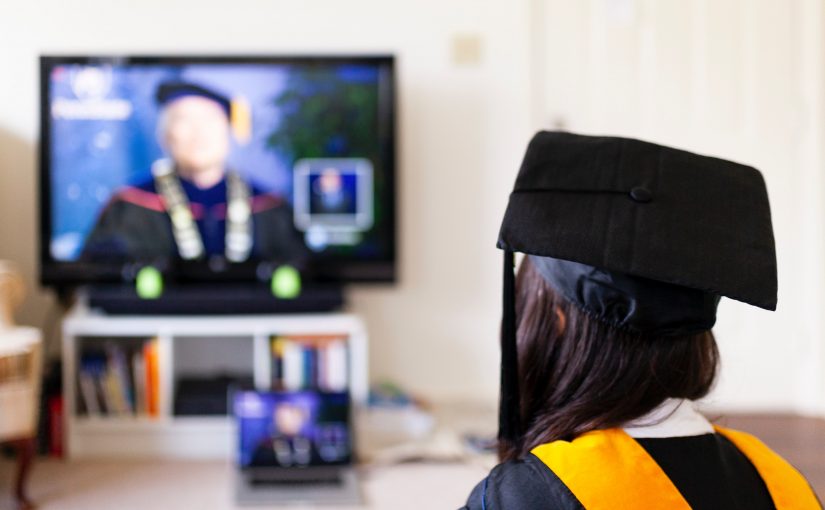In July 2020, Emily Murphy was invited, by the Literature Speaker Series within the School for English Literature, Language and Linguistics at Newcastle, to run a seminar on ‘Reinventing Your Work in Lockdown’. Emily workshopped ideas with a group of PGRs within the CLU before running her seminar. What followed was a series of honest, challenging and hopeful conversations about how to move forward in a field of work that has, just like everything else, been deeply affected by our current pandemic. This is the second of our series of reflections from different members of the CLU, in which recently graduated MLitt student Lauren Aspery reflects on the ways in which the landscape of online learning offers new ways to make university more accessible.
Lauren Aspery
Since the beginning of lockdown, those of us learning, researching and teaching from home have become all too familiar with video calls. Cats strolling across keyboards, infants interrupting, “Unmute yourself! I can’t hear you!”, and the awkward pause while you try to hang up and wonder when to stop waving back at your colleagues. These are just some examples of how university has looked during the pandemic. In turning to technology, universities across the country have been able to keep courses running and have supported staff and students while campuses are closed. We have quickly adapted to the changing circumstances we find ourselves in, replacing physical interaction with digital interaction. Yet, a lot of these resources have been there all along, so why haven’t we been using them?
A few years ago during my undergraduate degree, I had an extended period of absence after a complicated case of the flu. The School of English at Newcastle were really supportive of my circumstances, and I received nothing but kindness and compassion from my seminar leaders. However, when I approached staff about working remotely, I received mixed responses. Some were quick to offer digital solutions, suggesting I could join seminars via Skype and provided me with access to ReCap recordings, where others collected hand-outs for me to pick up at a later date and suggested I needn’t worry about catching up. Decisions, decisions!

Spending time away from campus and missing seminars, lectures and general social interaction was really frustrating, and it’s been a familiar feeling attempting to write my MLitt dissertation during lockdown. But while for me, this is a sudden alternative to my usual trips to the library and one-to-one supervisions, there are thousands of students who were already unable to attend face to face teaching, having long been faced with the limitations the rest of us have only been introduced to over the past few months. Those who have disabilities, those who research remotely, those who have caring responsibilities and a whole list of other circumstances that make on-campus learning less accessible could have benefited from the likes of Zoom, Teams, Slack and ReCap before they became a widespread necessity.
So where do we go from here? Should students be able to join seminars via video if they are unable to physically attend? Should hand-ins be electronic only? Should recorded sessions be automatically available to students? While there is no knowing what universities will do in the long run, one thing is certain: this lockdown period has proven the resilience and adaptability of staff and students, where no amount of awkward video calls and bad Wi-Fi connections have stopped us from learning, researching and communicating (even if it isn’t at the pace we’re used to). But this shouldn’t be a temporary fix. Universities have opened the door to the digital classroom, proving they have the capacity and technology to keep it wide open for those who need it.
Banner image: Annie Spratt on Unsplash

